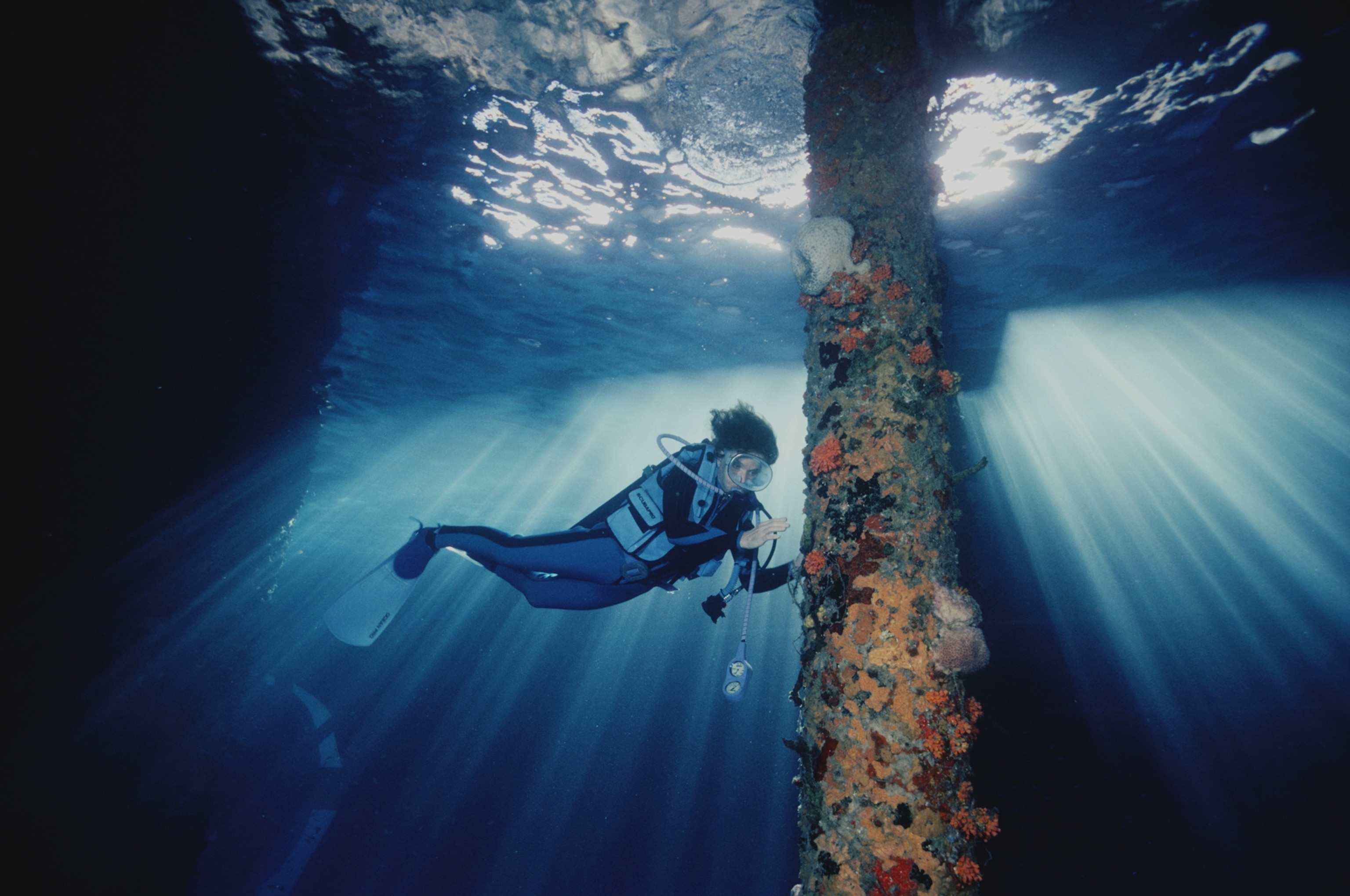
What record-setting oceanographer Sylvia Earle can teach us about resilience
Near her 85th birthday, the science icon known as Her Deepness reflects on the value of conservation during the COVID-19 pandemic.
Marine biologist Sylvia Earle has been recognized by the Library of Congress as a “Living Legend,” named the first of Time magazine’s “Heroes for the Planet,” and is frequently introduced as Her Deepness. For more than 50 years, she has explored the far-flung high seas, meeting strange, otherworldly creatures that live only in the great depths.
Earle got her Ph.D. in phycology, or the study of algae, in 1966, at a time when women were largely discouraged from pursuing higher education. She went on to become one of the first to work as an “aquanaut” in 1970, conducting research 50 feet underwater off the U.S. Virgin Islands as part of the federally funded Tektite II project. She was also the first woman to serve as chief scientist for the National Oceanic and Atmospheric Administration. She has designed submarines, authored numerous books, and created Mission Blue, an organization that promotes science communication and helps expand protected areas in the ocean.
Earle, who has been a National Geographic Explorer-in-Residence since 1998, turns 85 on Sunday. To mark the occasion, we sought her perspective on her epic career, her time in quarantine during the COVID-19 pandemic, and how to move the dial further with ocean conservation. The following interview has been edited for length and clarity.

Well, happy (early) birthday!
It's almost here. I'm always glad when they keep coming. It's better than not coming to another year.
Do you have any big plans?
Finishing chapter 10 [of my new book]! That would be the big present.
As someone who’s spent your life exploring wild places and on the road for most of the year, how’s quarantine been going?
It's a moment of staying still. Hitting the pause button. There are a couple of scientists who refer to this as the Anthropause. I mean, the cause of it is bad, but the time to reflect, to take it all in—when you're moving at high speed, as I’ve been for the past several years, on the road constantly, without the gift of time—to just sit back and put the pieces together.
Writing this book has also helped, of course, because I have a mission. It's a purposeful mission to look back on not just my experiences but to gather the experiences of colleagues around the world. Why not treat it [the ocean] as if our life depends on keeping it safe—because actually it does. Why do we think that we have the wisdom, the authority, to tear it up for the gain of a few countries, a few companies, a few individuals who will get very rich very fast at the cost of everyone else. This should not be acceptable; 2020 is a very big year for many reasons.
I have a silly question—it's not that silly because I'm a marine biologist—but I can't stop thinking about being underwater during all this.
I know. Dry rot is a terrible thing. I have to take frequent showers.
I’ve been thinking about how we could hug underwater on scuba safely. How you have your own breathing device, you know?
That's right. Let's have a meeting underwater, by all means.
What do you see as the most critical step moving forward for ocean conservation?
People who live far inland, even people who live on the coast, think, What's the ocean good for? Well, it's good for what we can take out of it. It's also good for what we can put into it. I mean, all the sewage gets dumped in the ocean. Not all of it, but a lot of it. All rivers flow into the sea with all their toxic load. But putting the spotlight on the problems and the solutions—that's what National Geographic does so well—and empowering people to use their knowledge and their individual capacity to make choices. If people do not know, they cannot care.
It's getting better all the time with the new means of communication. Not everyone can go to the moon and look back and see what we look like from that distant perch. And not everyone can be like James Cameron and go to the deepest part of the ocean. But for those lucky individuals who do get to see what others do not, this is a moment [via social media], as never before, to share that view, and to bring everyone up to speed with the risks we now face and also what we can do about it.
It's been a tough time for the ocean for a while, but this particular moment is really tough for all of us. What do you do if you lose hope?
It's so easy to look at all the problems and let them dominate you. And if you let that happen, you say, There's nothing I can do no matter what, then it's over. That is a self-fulfilling prophecy. Because if you stopped trying, of course, we're going to slide into the place you don't want to be. And you know, we might—but not without a fight. Not without doing everything you can to maintain the things that make life worth living. And there's so many reasons to be positive.
This is a turning point. It's just going to get harder from here on out. Do you think this is the only pandemic that nature has in the wings? Maybe it was enough to show that we are vulnerable. But we do have the power of choice, and by protecting the natural world, it's our insurance policy. Give nature a break, and it isn't just nature that benefits, we benefit. Give it a break instead of breaking it, instead of destroying the very systems that hold the planet steady.
Do you have anything on your birthday wish list?
In a very selfish way, the present of my dreams would be a pair of little thousand-meter submarines so I could take kids down to see what it's like in the twilight zone in the ocean, to share the view and inspire people all over the world to care for the ocean. In another sense, the best present would be that out of this terrible, tragic time that we're all experiencing, there will be a renewal of optimism in a better world that we know is possible, that we can, through our individual and collective actions, turn to a new era of respect for the natural systems that keep us alive, and for one another. It's the old “do unto others as you have them do unto you.” We need to do it across the board.